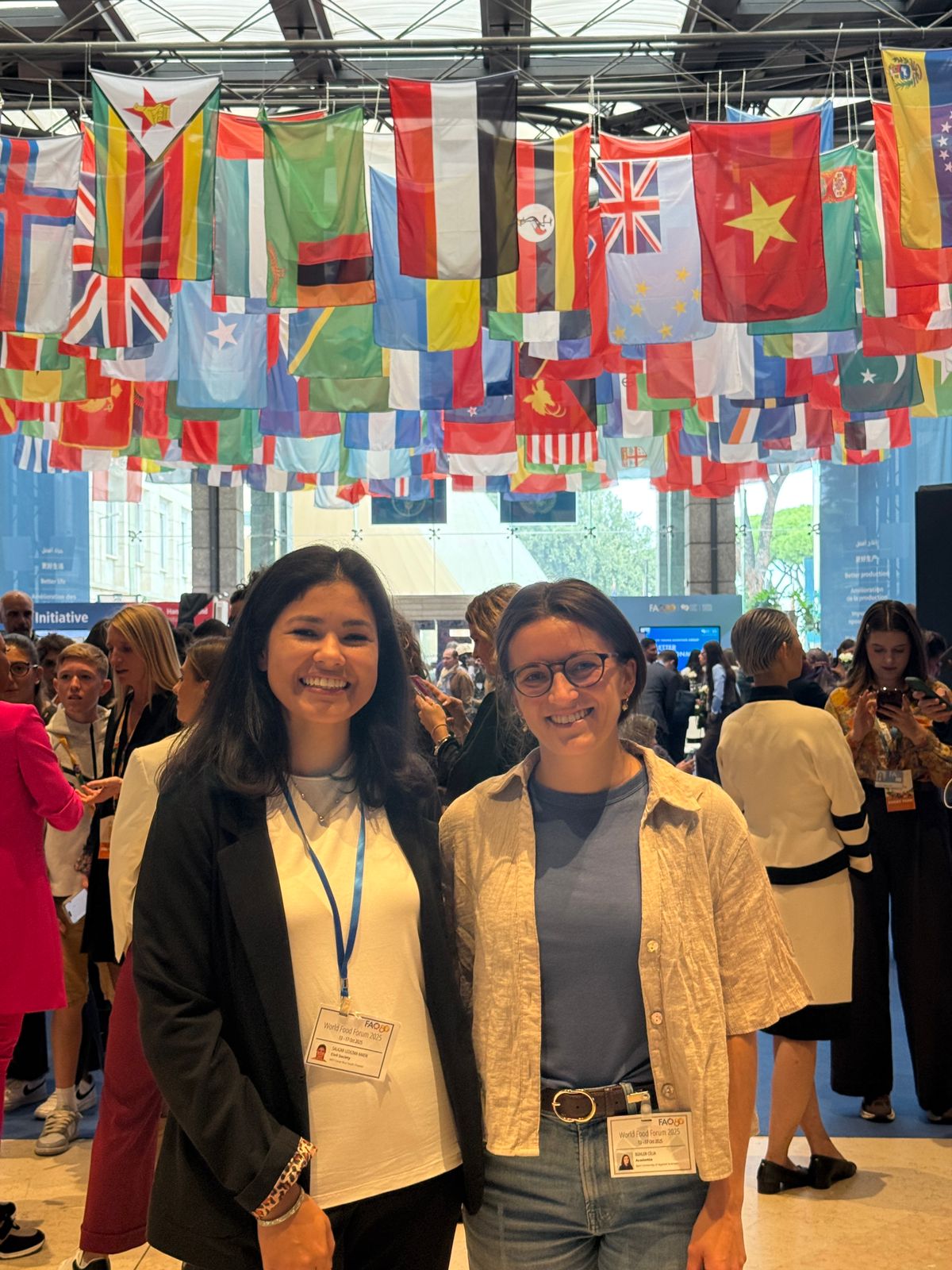
YPARD was involved in co-organizing key events and its presence was felt throughout the week at this gathering. Youth representatives spoke in several different sessions including topics like youth-led governance in agrifood systems, youth inclusion in agroecology, indigenous and rural youth action, and more. A highlight from the WFF was the YPARD co-organized youth agroecology side event with the Ban Ki-moon Centre for Global Citizens (BKMC) and the Agroecology Coalition. The side event, “Empowering Youth Through Agroecology: Building Climate Resilience & Participatory Systems,” opened with remarks by H.E. Ban Ki-moon, followed by interventions from youth experts and other important stakeholders. As an active co-organizer for this high-level event, YPARD stood out as a trusted youth organization for convening meaningful, youth-led dialogues on climate resilience and sustainable food systems.
At the Forum’s closing, Brazil’s First Lady, Rosângela da Silva, reinforced the central role of youth by emphasizing that putting young people at the heart of food systems transformation is both necessary and strategic. Her participation across several youth-focused events co-organized by YPARD provided strong political and moral support for youth-led action.
YPARD showcased concrete examples of youth-led initiatives turning policy into practice. These projects demonstrate how visibility and strong partnerships can scale impact:
YPARD representatives contributed to sessions on:

Speakers and co-organizers included Edoardo Corriere (Program Coordinator, YPARD GCU) and Karen Salazar (YPARD Policy Working Group member, Co-Chair, Youth Task Force of the UN Decade on Ecosystem Restoration). Along with being the main contact point for co-organization of the event with BKMC and Agroecology Coalition, Edoardo was also the moderator at the session. The event titled ‘Reconnecting Youth to Indigenous and Traditional Foods’ was co-organized with Act4Food, where Karen shared insights from Costa Rica on the challenges facing the production and affordability of basic grains, a staple that links cultural heritage, local livelihoods, and food sovereignty. As Co-Chair of the Youth Task Force of the UN Decade on Ecosystem Restoration (UNDER), a role she assumed through YPARD’s 2024 nomination, Karen also joined the ‘Young Forest Champions: Indigenous and Rural Youth in Action’ panel to discuss the vital role of youth constituencies in ecosystem restoration. The session focused on empowering young people, particularly from indigenous and rural communities, to lead restoration actions on the ground.

Karen also had the opportunity to present the findings from YPARD’s recent youth survey at the session titled Voices for Change: Youth-Led Governance for Urban Agri food System Transformation. At this event, Karen highlighted the importance of youth inclusion and active involvement in urban agrifood systems as a driver of meaningful change and governance transformation. She showcased the motivations of young people from building community connections to understanding policymaking processes. The key message resonated strongly: true youth inclusion requires governance and policies developed with youth, not merely for them.
A clear message emerged across WFF sessions: when youth co-design and co-implement initiatives, outcomes are more durable. Empowerment grows from a combination of skills, trust, space, and resources. When youth and women are included in co-design processes, initiatives become more equitable, resilient, and climate-smart. Platforms like YPARD Cafés translate ideas into local policy and practice; scaling requires visibility plus institutional pathways recognition linked to domestic policy and financing unlocks durability.
WFF 2025 reaffirmed YPARD’s role as a trusted partner in youth-centered agricultural transformation. From H.E. Ban Ki-moon to Brazil’s First Lady, global champions amplified YPARD’s message and endorsed its work. Partners sought out YPARD to convene discussions, moderate high-level dialogues, and share field evidence reinforcing the organization’s unique ability to bridge grassroots innovation and global decision-making.